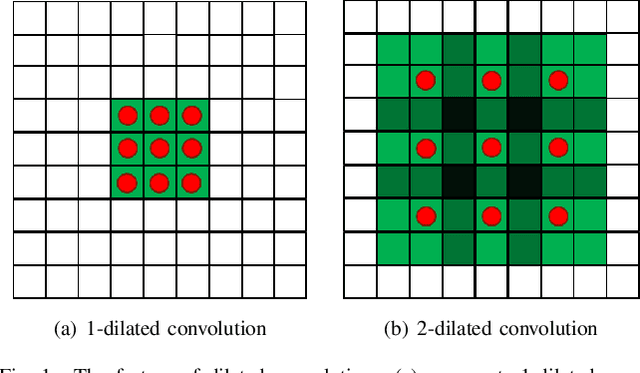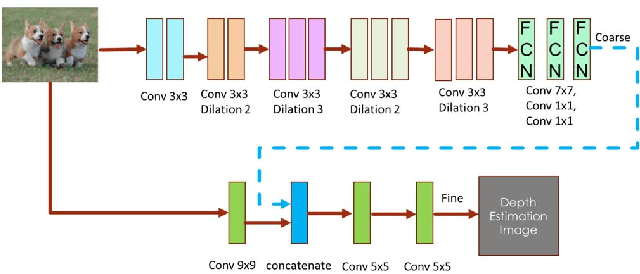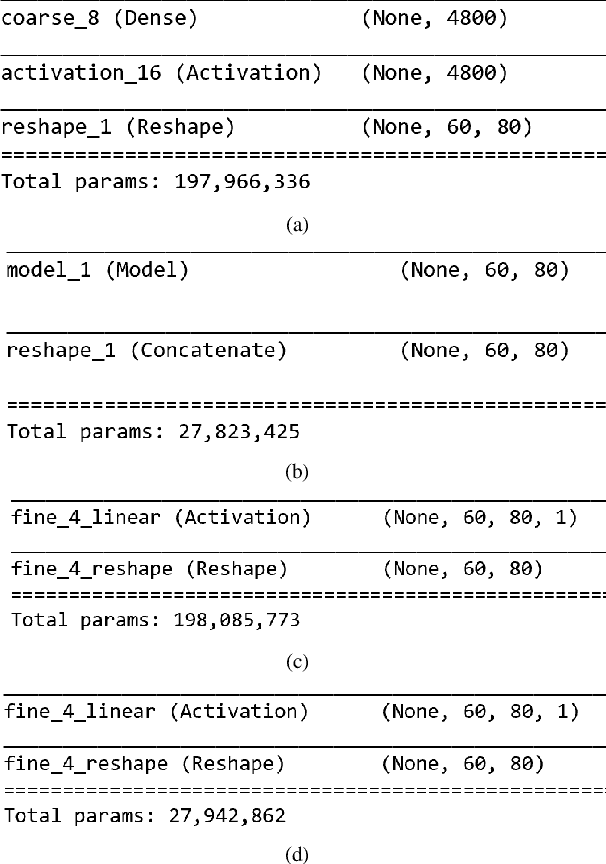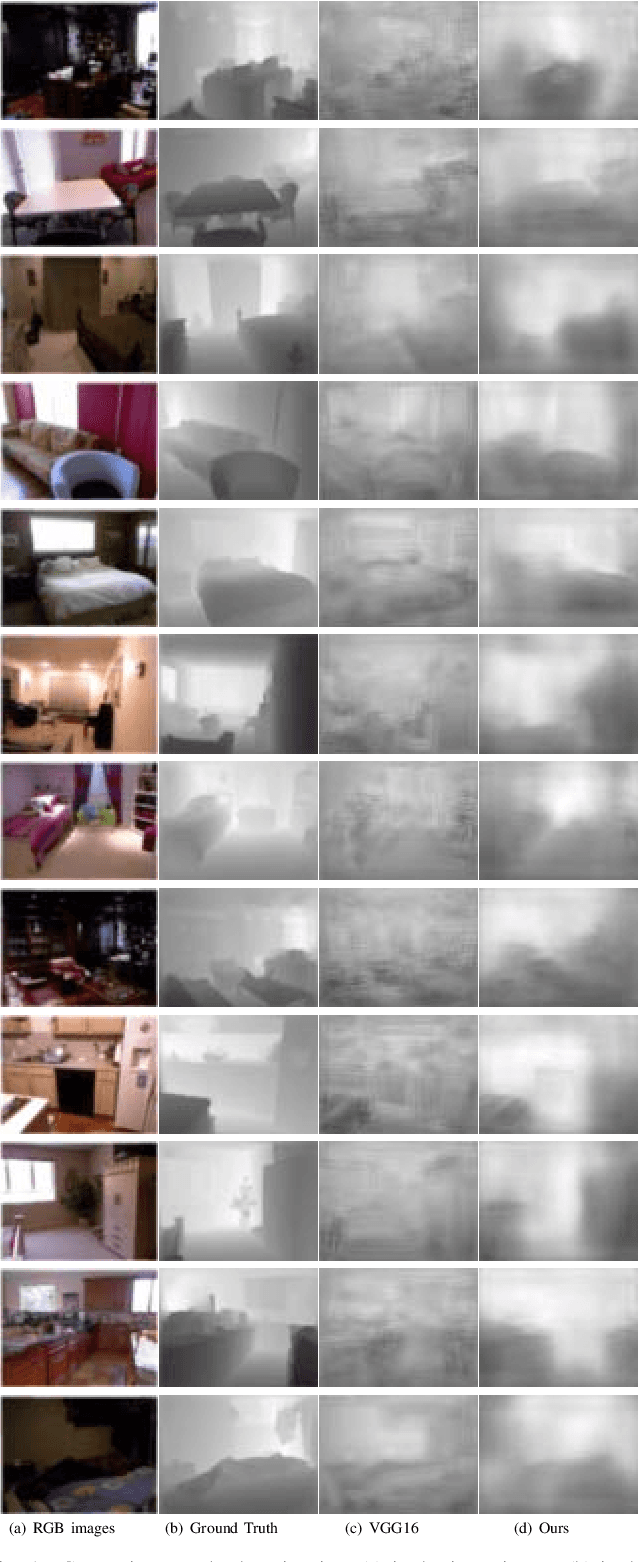Yindong Hua
Dilated Fully Convolutional Neural Network for Depth Estimation from a Single Image
Mar 12, 2021



Abstract:Depth prediction plays a key role in understanding a 3D scene. Several techniques have been developed throughout the years, among which Convolutional Neural Network has recently achieved state-of-the-art performance on estimating depth from a single image. However, traditional CNNs suffer from the lower resolution and information loss caused by the pooling layers. And oversized parameters generated from fully connected layers often lead to a exploded memory usage problem. In this paper, we present an advanced Dilated Fully Convolutional Neural Network to address the deficiencies. Taking advantages of the exponential expansion of the receptive field in dilated convolutions, our model can minimize the loss of resolution. It also reduces the amount of parameters significantly by replacing the fully connected layers with the fully convolutional layers. We show experimentally on NYU Depth V2 datasets that the depth prediction obtained from our model is considerably closer to ground truth than that from traditional CNNs techniques.
Advanced Multiple Linear Regression Based Dark Channel Prior Applied on Dehazing Image and Generating Synthetic Haze
Mar 12, 2021



Abstract:Haze removal is an extremely challenging task, and object detection in the hazy environment has recently gained much attention due to the popularity of autonomous driving and traffic surveillance. In this work, the authors propose a multiple linear regression haze removal model based on a widely adopted dehazing algorithm named Dark Channel Prior. Training this model with a synthetic hazy dataset, the proposed model can reduce the unanticipated deviations generated from the rough estimations of transmission map and atmospheric light in Dark Channel Prior. To increase object detection accuracy in the hazy environment, the authors further present an algorithm to build a synthetic hazy COCO training dataset by generating the artificial haze to the MS COCO training dataset. The experimental results demonstrate that the proposed model obtains higher image quality and shares more similarity with ground truth images than most conventional pixel-based dehazing algorithms and neural network based haze-removal models. The authors also evaluate the mean average precision of Mask R-CNN when training the network with synthetic hazy COCO training dataset and preprocessing test hazy dataset by removing the haze with the proposed dehazing model. It turns out that both approaches can increase the object detection accuracy significantly and outperform most existing object detection models over hazy images.
 Add to Chrome
Add to Chrome Add to Firefox
Add to Firefox Add to Edge
Add to Edge